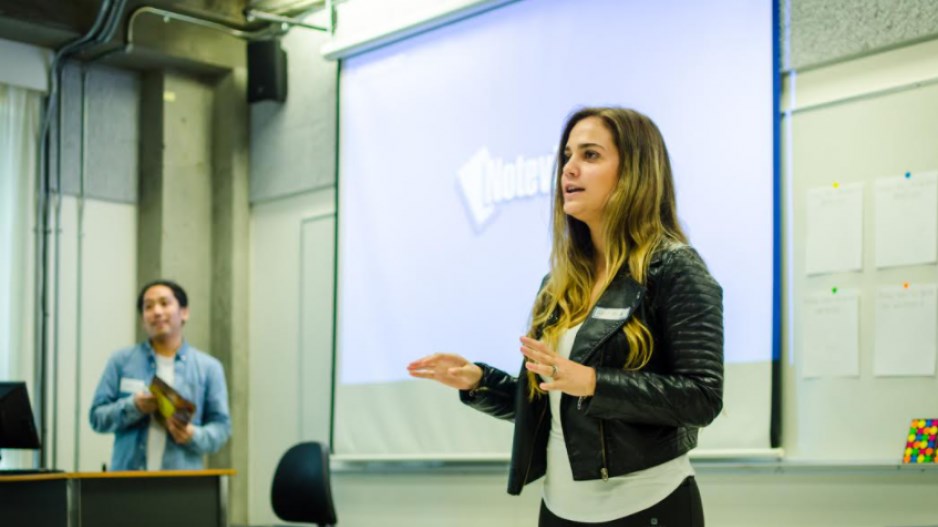It started out as a request for market research.
Paul Reichard, Director at SEI Industries, told students in the BCIT Business Consulting Projects (BCP) program that SEI wanted to bid on a mega-project that included finding out information about the company’s potential competitors, product specifications, and more. From their BCIT BCP student team, the Delta-based industrial fabric products manufacturer got that—and much more. What the students recommended turned out to be a game-changer.
BCP is the capstone of the BCIT School of Business + Media’s Global Trade and Transportation Management (formerly International Business Management) two-year diploma program. After intensive research, team leader Jared Pankratz and fellow student Ji Hyung Choi had an aha! moment, as Reichard recalls. “Instead of looking at our competitors as enemies, they recommended we turn them into allies and work with them. We had advantages they didn’t have and vice-versa. As a result, SEI negotiated a very profitable teaming agreement.”
SEI has been engaging students to address specific business issues and make recommendations since 2011. The results have been so impressive that SEI, like many other BCP clients, uses the projects as a recruitment strategy. By contrast, headhunter hires often go off the rails, Reichard finds. What looks great on paper turns out to be a bad fit. “The advantage of BCP is that you can try these students out, see their bright minds at work, their attitudes and skill sets, how they fit with your company’s culture. It’s a good network to find skilled labour.”
Jackie Li, Program Head of Global Trade and Transportation Management (GTTM), puts it simply: “We teach students what they need to succeed.” As with programs at traditional institutions, students learn business theory. But GTTM goes far beyond that. “Our faculty are all industry veterans who stay closely connected to industry. We share the latest, the need-to-know industry practices, then put our students right into that real-world environment. Our graduates are job-ready.”
For students, BCP offers a chance to contribute innovative ideas to business and community; by experiencing a real-life work environment up close, they can decide if this is the company, the industry, they want to work in. For companies, the specific issue they face is compelling, but they may be short of the resources and time to address it. BCP, now in its 20th-plus year, are a welcome solution. “It’s win-win,” says Li.
How does a BCP work?
Based on student interest, Li and his GTTM colleagues match a team with a client and project. Over 10 weeks, the student team spends three days a week in the company’s office—though, during the pandemic, they’ve worked with the client from home. The client provides the data, procedures and operations, and points students to the necessary background research. Every week the team has a progress meeting with the client and a consultation with a faculty advisor. At the end, the students present their recommendations to company management.
The soon-to-graduate Pankratz looks back on his BCP as enriching, invaluable—and challenging. It was a project heavy on technical information, e.g., specifications and tenders, which they had to learn as they went. That, plus adjusting to what he calls “the COVID curveball,” made the process tough, to put it mildly.
However, GTTM prepares you for the real world, says Pankratz. “The emphasis is on developing key skills in us, such as teamwork, crafting strategy and managing change, project management, data analysis; not just ramming theories into our head. They always make a connection between whatever you learn and a real-world scenario. So, after approaching and reviewing the challenge that SEI had for us, it was like all those skills and lab simulations just sort of connected and, ‘Hey! We can do this!’”
Pankratz and Choi submitted their findings, gave updates and got feedback—and, as Reichard notes, always on schedule. Now Pankratz chuckles, remembering the silence in the room that greeted his and Choi’s game-changer recommendations. And then—phew!—the client’s enthusiasm.
He echoes Li - at BCIT you get what you need to succeed. “Our instructors know how to grow us and help us reach our potential in a way that other schools don’t. They teach us how to fundamentally think and look at problems differently.”




